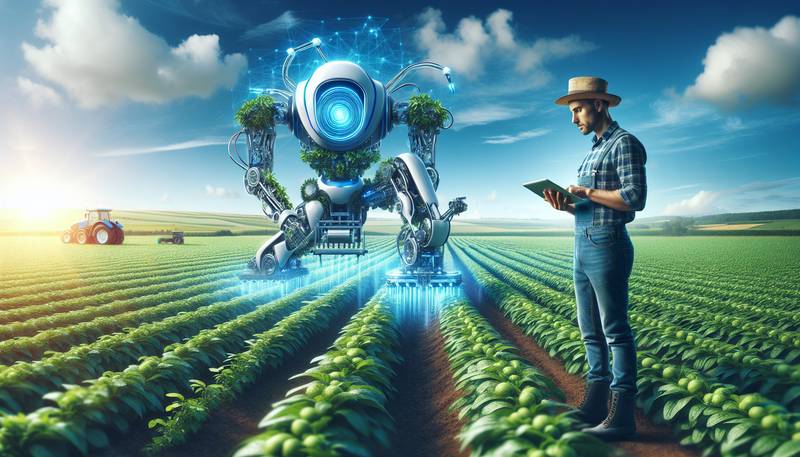Tech in Agriculture: The Rise of Smart Farming

Agriculture has always been one of the oldest and most important industries in the world. From the earliest days of human civilization, farming has been the primary source of food, sustenance, and economic growth. However, with the rise of technology, agriculture is now undergoing a major transformation, which is transforming the way we farm, grow crops, and produce food. Welcome to the world of smart farming, where technology is revolutionizing agriculture in ways we could have never imagined.
What is Smart Farming?
Smart farming, also known as precision agriculture, is the use of technology to monitor, manage, and optimize the agricultural process. This involves the integration of advanced technologies such as sensors, robotics, drones, GPS, and data analysis to improve crop yield, reduce waste, and increase efficiency on the farm. Smart farming is rapidly becoming the new norm in agriculture, as farmers and agribusinesses adopt these technologies to stay competitive in a rapidly changing industry.
The Benefits of Smart Farming
One of the most significant benefits of smart farming is the ability to increase crop yield and productivity. With the help of technology, farmers can monitor crops in real-time, identify problems early, and take corrective action to improve crop health and yield. This means that farmers can produce more food with fewer resources, which is essential as the global population continues to grow and demand for food increases.
Another benefit of smart farming is the reduction of waste and environmental impact. With smart farming technologies, farmers can optimize the use of resources such as water, fertilizers, and pesticides, reducing waste and minimizing the impact on the environment. This is particularly important as the world faces the challenges of climate change and the need to reduce carbon emissions.
Smart farming also offers the potential to improve the quality of life for farmers. By automating many of the manual tasks involved in farming, such as planting, harvesting, and irrigation, farmers can reduce the physical strain and time required to manage their farms. This can lead to a better work-life balance and increased job satisfaction for farmers.
The Rise of Smart Farming Technologies
The rise of smart farming is being driven by a range of innovative technologies that are transforming the way we farm. Some of the most exciting technologies in smart farming include:
Sensors and IoT
Sensors and the Internet of Things (IoT) are at the heart of smart farming. These technologies allow farmers to collect real-time data on crops, soil, weather, and other factors that impact farming. This data can be used to make informed decisions about planting, irrigation, and harvesting, leading to better crop management and higher yields.
Robotics and Automation
Robotics and automation are also playing a key role in smart farming. From drones that can monitor crops from the air to robots that can plant and harvest crops, these technologies are reducing the need for human intervention in farming, leading to increased efficiency and productivity.
Big Data and Analytics
Big data and analytics are also transforming agriculture. With the ability to collect and analyze vast amounts of data, farmers can now gain insights into their crops and operations that were previously impossible. This data-driven approach to farming is leading to more informed decision-making and better outcomes for farmers and the agricultural industry as a whole.
The Future of Smart Farming
The future of smart farming is bright, as technology continues to advance and more farmers adopt these innovations. However, there are also challenges to overcome, such as the need for education and training for farmers, the high cost of some technologies, and the need for better data privacy and security.
Despite these challenges, it is clear that smart farming is the future of agriculture. With the potential to improve crop yields, reduce waste, and increase efficiency, smart farming is set to revolutionize the way we farm and produce food. As we move forward, we can expect to see more and more farms adopting these technologies, leading to a more sustainable, productive, and profitable agricultural industry.
Conclusion
In conclusion, the rise of smart farming is a transformative moment in agriculture, offering new opportunities and challenges to farmers and the industry as a whole. As technology continues to advance, we can expect to see even more exciting innovations in smart farming, leading to a future where farming is smarter, more efficient, and more sustainable than ever before.


